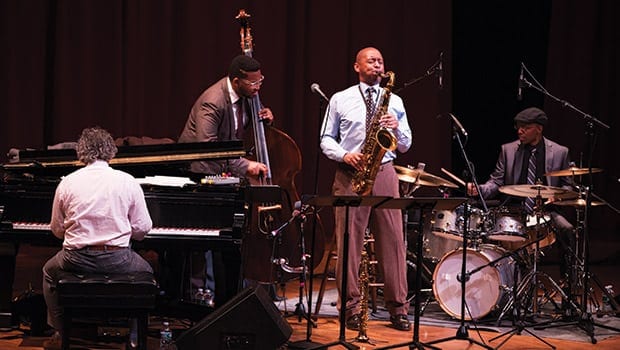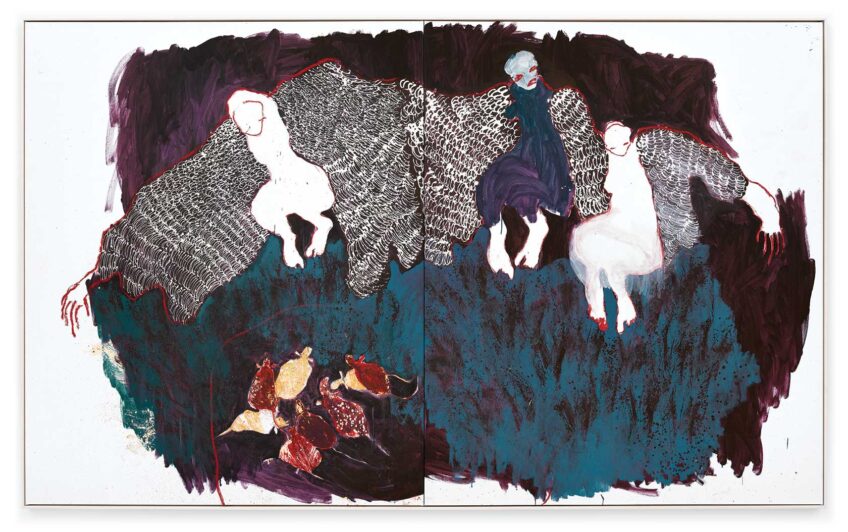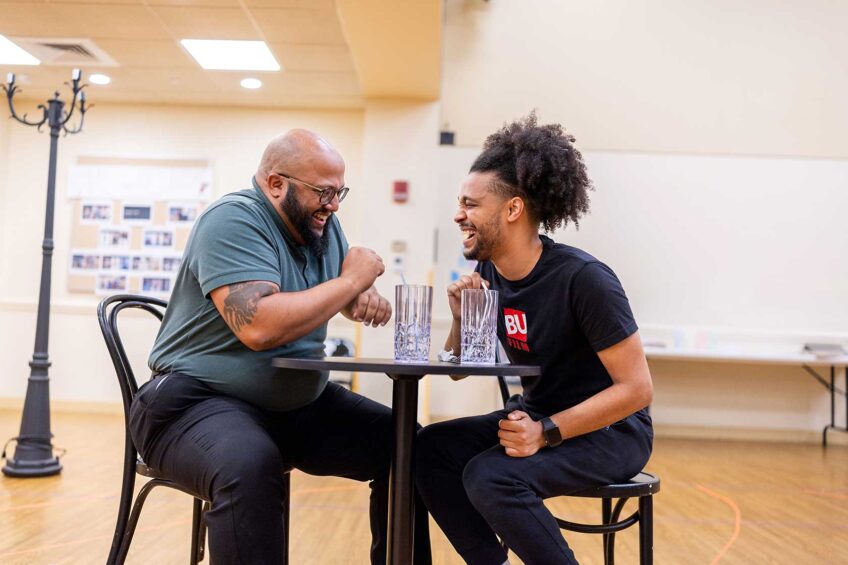Branford Marsalis warms crowd with a hot set at Harvard’s Sanders Theater

Branford Marsalis opened his extraordinary 90-minute set at Harvard’s Sanders Theater last week with grumbling, complaint and a decidedly off-balanced gait.
“I think this is the last time I am coming to Boston in January,” exclaimed Marsalis who hails from one of the country’s most prominent and prolific jazz families.
The saxophonist from New Orleans was blaming Boston’s latest heaping of snow for his travel troubles that delayed his recent flight and caused the cancellation of a master jazz class he was scheduled the teach at Harvard before the concert.
But at the performance the saxophonist was also hobbling across the stage all night, saying it was the first gig he’s had since his knee surgery in December.
“I am old. I’ve aged. That happens,” said Marsalis. He turns 55 this year.
Despite his moaning about the weather and his need for a new knee, Marsalis pitched a perfect performance, kicking off the new year’s Celebrity Series of Boston concert series.
Long known for his ability to play across the broad expanse of the jazz genre, Marsalis traversed the blues, swing, avant garde and soulful ballads — elating his listeners and putting on display his expansive command of contemporary jazz.
The set began with A Mighty Sword, a meandering, spritely tune that plows along with bright be-bop colors, featuring the quartet’s capacity at swing and high-velocity improvisation. Joey Calderazzo, who has replaced the quartet’s mainstay Kenny Kirkland, on piano provided intensity which often lifted him from his seat, seasoning the group, at times, with pointed musical ideas.
Rudy Royston on drums proved up to all the history and understanding Marsalis brings to the performance. Royston’s technique is clear. Like Marsalis’ longtime drummer Jeff “Tain” Watts Royston plays toward improvised interpretation and percussive leadership.
In Dancing Cheek to Cheek, a 1935 song written by Irvin Berlin for the Fred Astaire and Ginger Rogers movie Top Hat, Royston provided a saucy introduction that allowed the band to groove and then swiftly shift into flights of embellishments that often referenced highflying Charlie Parker solos or the post-bop Miles Davis Quintet. Miles Smiles and Nefertiti, are among the roots that anchor Branford Marsalis’ muscular, contemporary sound.
Russell Hall, 20, on bass, provided the performance with stability on the strings. Hall was particularly splendid in the quartet’s final number, St. James Infirmary, an early New Orleans jazz piece made famous by Louis Armstrong in a 1928 recording. Hall’s contribution is deliberately lazy, yet resolute. His jazz career is brimming.
Despite the icy tones outside, the house at the Sanders was warm and full. Marsalis may have been in a foul mood. But all that attitude melted as he ushered his audience into a listening event that featured his elite talent in its top form.






